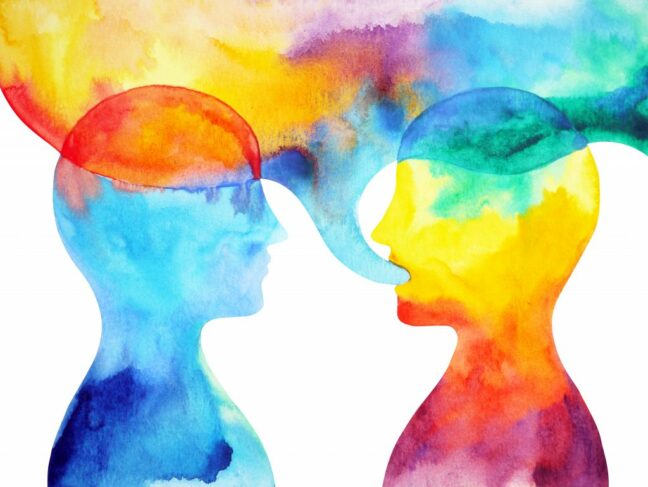Several sources attest to the mental fragility of European populations, whose social isolation has increased still further as a result of the Covid-19 pandemic (INSEE, handicap et dépendances 1999 – Les solitudes en France : un tissu social fragilisé par la pandémie, Rapport Credoc 2021 – 10e rapport annuel sur les solitudes, Fondation de France 2016 ).
In this context, psychological first aid training courses have been set up, which mainly offer approaches based on talking and empathic listening (Guide to psychological first aid, Red Cross Red Crescent 2018 – Psychological first aid, a guide for those working in the field, WHO 2011).
The PHANDI project aims to complement these approaches by documenting, developing and testing methods for raising awareness among non-specialist players in contact with vulnerable groups :
- non-verbal, body-psychological, inspired by art therapy
- rooted in the poetics of life stories (creativity, art and culture, cultural heritage)
- dedicated to the emotional education of a wide range of audiences and stakeholders from a variety of social and cultural backgrounds
- in an intergenerational and intercultural context (active ageing, reducing the intergenerational and social intercultural divide)
A printable guide to best practice and the project will be created, complemented by a virtual reality presentation.
Activities*
- monthly local practice groups throughout the project
- three five-day training courses in Marseille (May 2023), Trani (September 2022) and Turkey (December 2022)
- a dissemination event organised in each partner country, including a final event in Turkey
Profiles requested
- psychological care providers, health workers, youth workers, social and employment advisers
- individual beneficiaries
- relay organisations active in the field of psychological care
- people interested in health issues, European policy and social media, etc.
- English level B1 (language support available)
Partners
- Domoloisirs (France, Coordinateur)
- Fondation BOSEV (Turquie)
- Petit Pas (Italie)
*indicative dates subject to change
Project n°2022-1-FR01-KA210-ADU-000082398 co-funded by the European Union’s Erasmus programme

